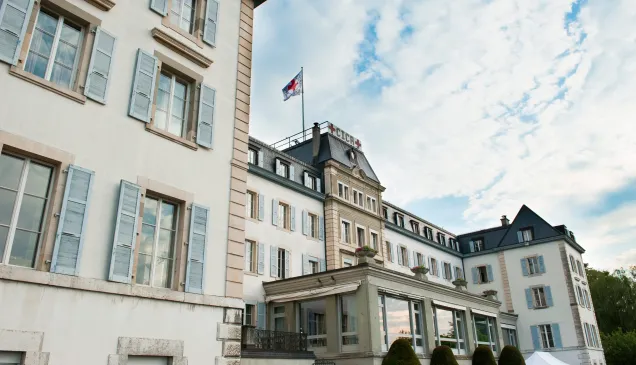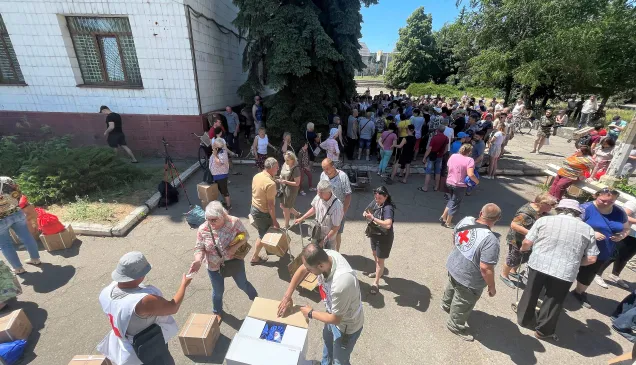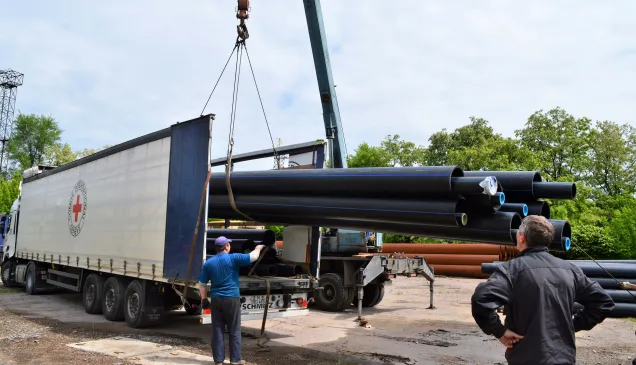Ukraine: ‘We lost a part of our soul, not just a hospital’
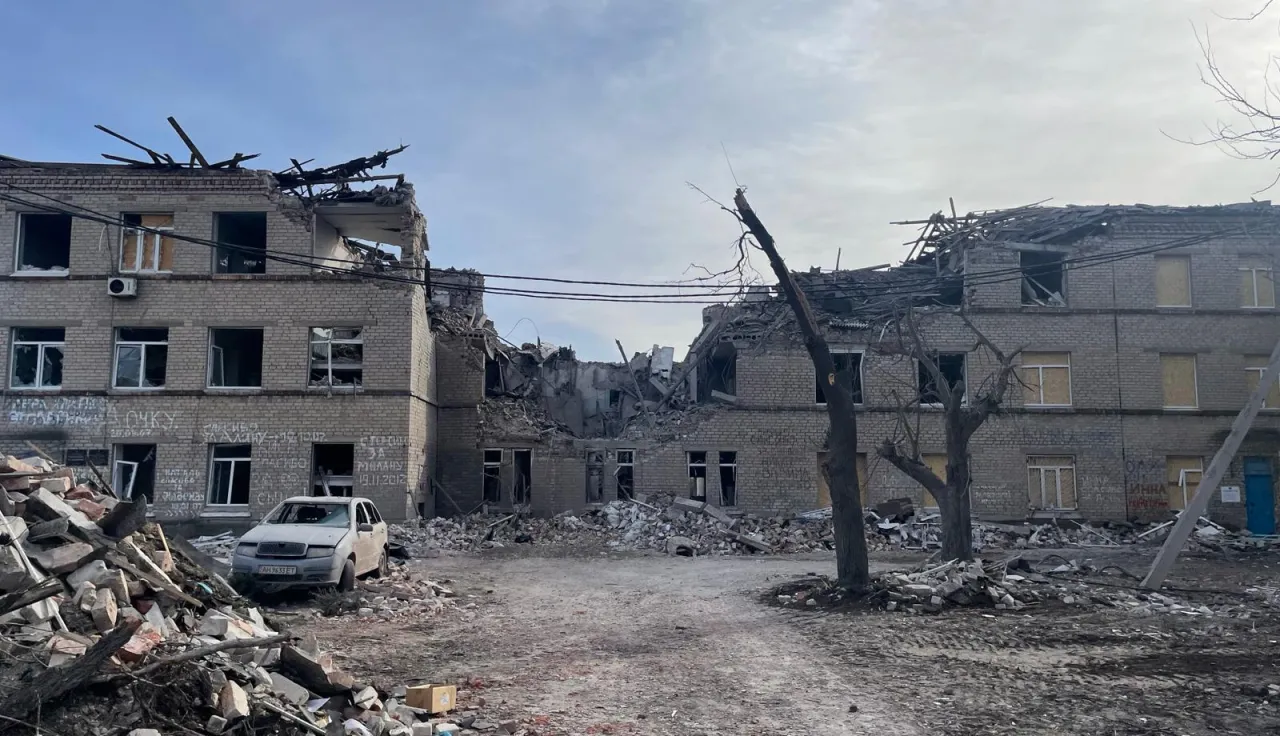
As frontlines shift, entire communities have had to evacuate. In Donetsk Region, we helped relocate hospitals and primary healthcare centres away from the frontline so they can continue to operate and assist people affected by the armed conflict. Selydove City Hospital is one of them.
It was one of the major hospitals in Ukraine. There were 190 beds and eight wards: intensive care, surgery, traumatology, maternity with gynaecology, paediatric and adult infectious diseases, therapeutic, and neurological with a good stroke unit. The Selydove Central City Hospital served about 6,000 inpatients and 90,000 outpatients every year.
"It was very well staffed,” says hospital deputy director Svitlana Voronkova. “There were 553 personnel, including about 50 doctors. They were all first and highest category doctors, with extensive experience. The hospital had a lot of capacity," she explains.
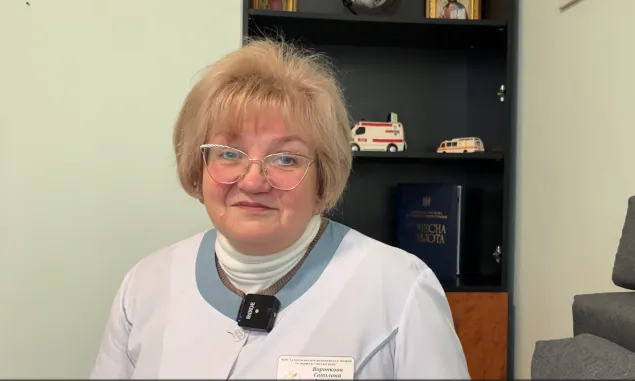
When the hospital was damaged by a strike in 2024, for the second time in a few months, the decision was taken to transfer all remaining assets to Mykolaivka, Odesa Region, with the support of the International Committee of the Red Cross (ICRC). For Svitlana and her colleagues, it was time to decide whether to stay or go.
In Selydove, the armed conflict began in 2014
Svitlana has worked at the hospital for more than a decade, and lived in Selydove for 62 years. She and the hospital team have seen the area go through good times and bad. She speaks to us from the hospital’s new home in Mykolaivka.
"For us, for our hospital, the war began in 2014,” she says. “We have been living in the war for ten years. The Selydove Hospital was used for triage, a place where primary care could be provided. In June-July 2014, when hostilities were underway at the Donetsk airport, in Pisky, we were the first to provide assistance to both combatants and civilians. It was horrible.”
More than a decade of armed conflict has placed extreme pressure on Ukraine’s health system, including a surge of wounded combatants suffering complex trauma and requiring long-term care. For elderly people, patients with chronic conditions or disability, safe and sustainable access to adequate healthcare is a daily struggle – especially near the frontlines.
Our humanitarian health response seeks to strengthen the continuum of care, from emergency and prehospital services to tertiary care for long-term physical and mental trauma. We also provide specialized training to support the capacity of emergency services to respond to mass casualty incidents.
In 2024…
- 21 hospitals received regular donations of equipment and medicine.
- 10 hospitals were supported with engineering projects.
- 12 primary healthcare centres and mobile health units received emergency aid.
- 100,191 patients benefited from consultations on high blood pressure or diabetes at centres supported by the ICRC.
- 1,253 psychologists participated in training sessions to enhance their skills in psychological and psychosocial care.
- 344 first aid training sessions were conducted for 5026 people, including health-care professionals.
- 9077 individual patient consultations were held through 3 mobile health clinics supported by the ICRC.
From that moment, the rescue of wounded people was added to the usual workload. "The number of strokes, heart attacks and neurological diseases among local communities also rose sharply", Svitlana recalls.
"The increase in workload was so much that doctors had to suspend hospital development projects that were already underway – just to do all they could to save people."
Following the escalation of the armed conflict, in February 2022, the hospital became one of the main first-line hospitals involved in providing care to the wounded.
At that time, I really understood the words of my grandmother, who kept saying at the family table: 'If only there was no war!' This is what crosses out all your dreams, all your plans.
It wasn’t long before Selydove Hospital got caught in the hostilities – twice. A first strike, in November 2023, hit the polyclinic and infectious disease wards. Medical workers repaired the remaining premises, hopeful they would be able to continue their lifesaving work.
To help the hospital continue serving communities close to the frontlines, it received regular donations from the ICRC throughout this period. “On a monthly basis, we received medicines and medical supplies, and, on a number of occasions, medical equipment,” Svitlana recalls. “We clung to all the straws so that the hospital could work.”
Amid power cuts and shelling in the area , doctors continued to perform their duties around the clock, although they often needed help themselves due to psychological burnout. The ICRC provided first aid kits as part of its emergency response. “Psychological sessions were also held for the staff so that the hospital could continue to function in its entirety,” says Oleksii Alekseienko, an ICRC senior medical specialist based in Dnipro.
Svitlana remembers working alongside ICRC medical staff, including anaesthesiologists, who helped out. “You see,” she says, “we worked as one family, and even different languages did not get in the way of working together.”
Moving to a safer place
When the hospital was struck a second time, in February 2024 , several patients – including children and a pregnant woman – lost their lives. Svitlana’s colleagues were also injured. As she describes those cases, Svitlana holds back tears. "I saw this explosion, this flash. The second strike hit the main building, the separate infectious disease ward building, the pathology department, and garages. In the main building were all our core services, all the emergency services – all of that was damaged."
Svitlana lived very close to the hospital. Within five minutes, she was able to reach the hospital and, together with other medical staff, began to provide emergency medical care. "It was a nightmare, where people needed to be calmed down, when panic could not be allowed, when we organized an evacuation from our hospital for 130 patients.”
Ambulances from across the region helped evacuate patients, relocating them to other points of care. “We are very grateful to the ambulance teams. We saved those people’s lives,” says Svitlana. But this second strike had further damaged the buildings, and with them the doctors' hopes of continuing to work from Selydove.
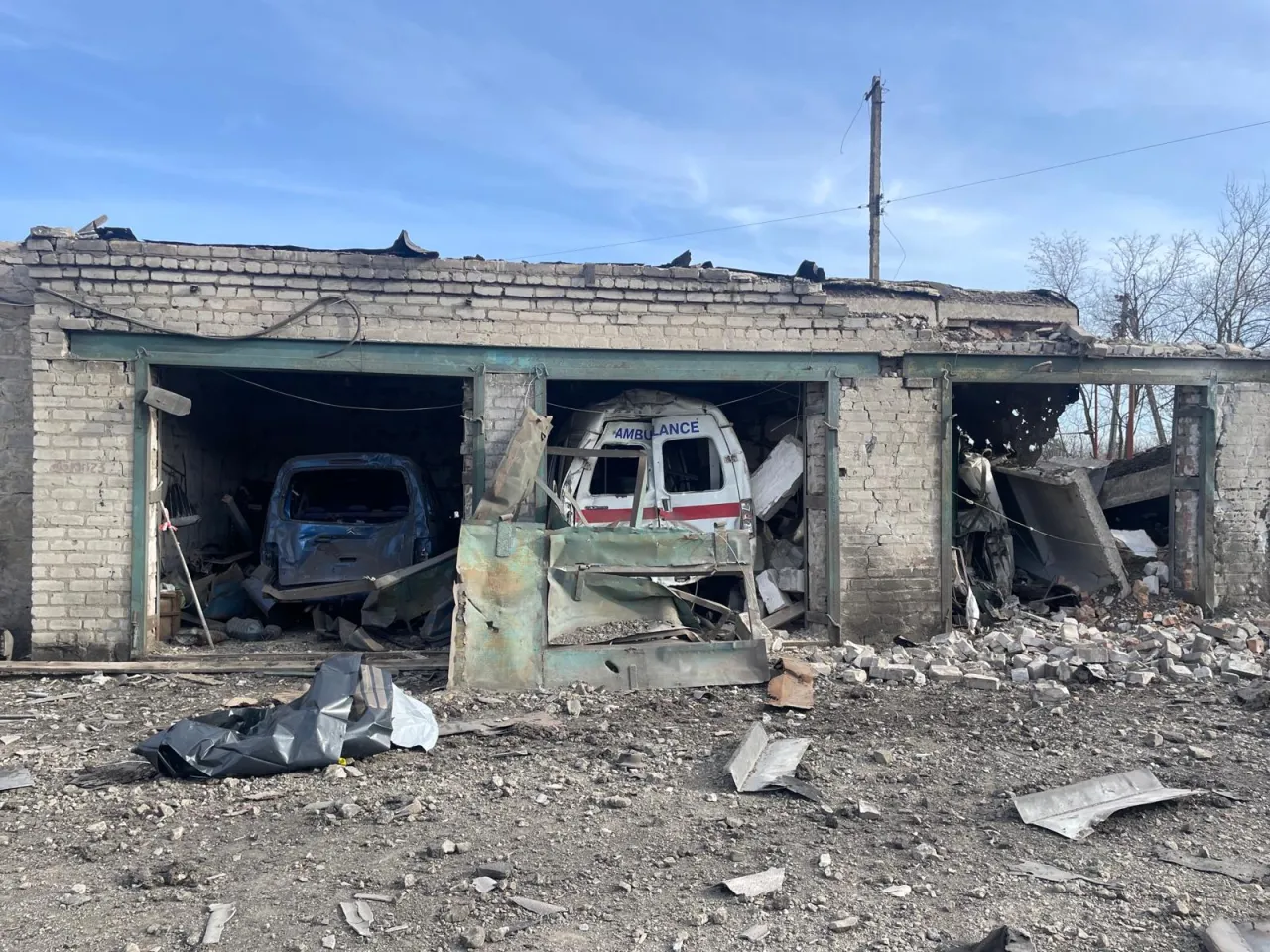
In June 2024, ICRC trucks arrived in Selydove to transport the hospital’s property to Mykolaivka, Odesa Region. In just three hours, ten people loaded everything into the cars for the journey.
“We were greatly supported by the local authorities,” Svitlana says of their arrival in Mykolaivka. “The mayor supported us from the very beginning and welcomed us very gladly. And ordinary people, men strong enough to unload came to help," Svitlana begins to smile.

Selydove City Hospital is now providing outpatient medical care at its new location. Its laboratory is working, as well as its therapeutic, infectious disease and surgical wards. There is an x-ray room, an autoclave, a laundry, a catering unit and a pathology building.
Local authorities help the hospital staff with repairs, water and electricity supply. The ICRC provided the hospital with alternative heating solutions to get it through the winter, as well as basic medicines.
Even after Svitlana and her hospital relocated – able to help others – she is still drawn to the place where her memories remain. “My soul, my thoughts remain in my homeland,” she says. “Many years spent there will not pass without a trace. We are sincerely grateful for such a warm welcome, people treat us well here. They heal our emotional wounds. But, you see, at night, I still dream of my home, my hospital, my hometown."

